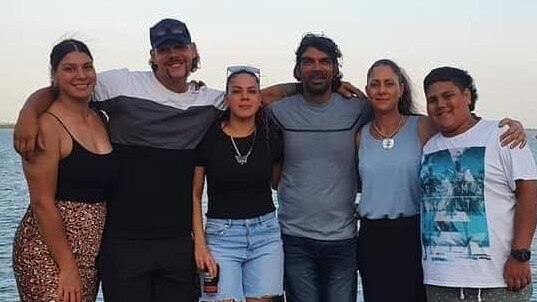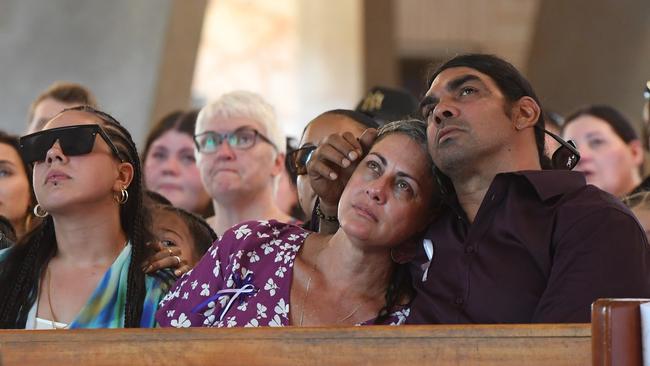Epilepsy expert says Kailah May’s tragic drowning death is ‘unfortunately common’
The May family has shared the touching tribute that was played at Kailah’s emotional funeral. WATCH THE VIDEO.
News
Don't miss out on the headlines from News. Followed categories will be added to My News.
A WEEK after Kailah May’s funeral, an epilepsy expert says her death is an occurrence that happens far too often.
Kailah tragically passed away after having an epileptic seizure before being found by her 14-year-old brother and mum at the bottom of the family pool.
Epilepsy Foundation chief executive Graeme Shears said this was an occurrence that happened regularly with about 300 people in Australia dying every year due to epilepsy.
“About half of those deaths is from what is called sudden unexpected death in epilepsy and that’s when people are found dead often in the morning, or dying in their sleep and generally dying while they are alone,” Mr Shears said.
“There’s about five per cent from what’s called Status Epilepticus which is where someone has a seizure that just does not stop.

“The other 45 per cent is similar to (Kailah May) which is where as a result of a seizure, they drown or they fall off something or they’re involved in some sort of accident.”
Kailah was diagnosed with epilepsy last September when she turned 18 years old.
Her parents said she had epilepsy her whole life but going to nightclubs and drinking alcohol triggered her seizures.
Mr Shears said it was common to be diagnosed later in life but it was rare to be diagnosed with photosentive epileptic triggers, which is less than five per cent of triggers.
“There’s a quite a lot of people diagnosed when they’re children, but then it settles down and then it spikes up again for people aged over 60,” he said.

“People who are having seizures that aren’t controlled, are always at risk around water, whether it be pools or swimming, or bathing alone ... we highlight the risks of that and make sure they’re always supervised in those situations.”
Kailah’s mum Tara said the family didn’t know enough information about epilepsy.
“There wasn’t even enough information in going to the appointments about it,” she said.
“There wasn’t any pamphlets or they just give you the name of it, but it still doesn’t make you understand what it really is.
“My goal is to contribute donation into research and like epilepsy more well known make people more aware of it, and the risks associated with it.”

Mr Shears said the Epilepsy Foundation recently launched the Nation Epilepsy support service.
“It’s a national information referral line,’ he said.
“That’s a place where anybody newly diagnosed or otherwise can get information they need about their epilepsy, they can also get education and training or get referred to one of the state organisations to get comprehensive support around epilepsy.”
You can find more information regarding epilepsy here or call 1300 761 487 for support.




